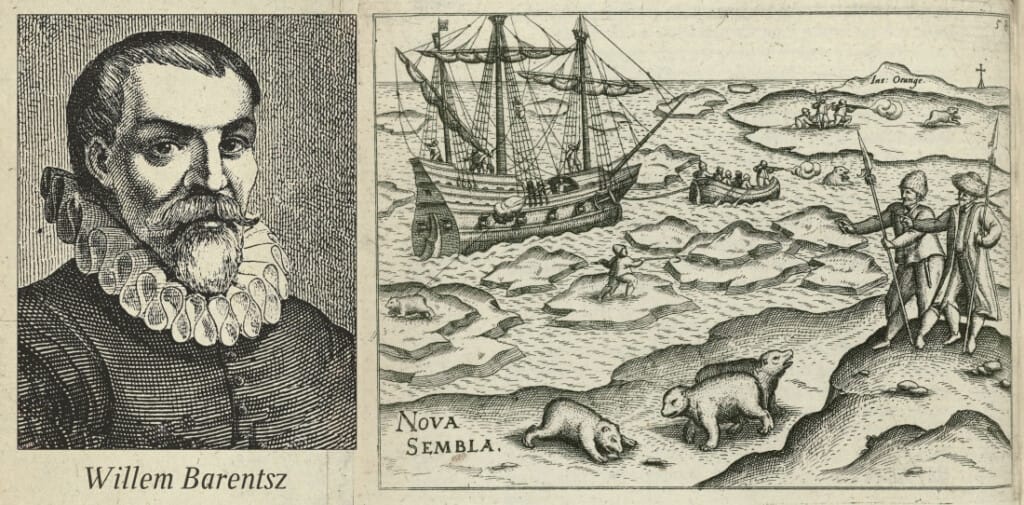Arctic Survival Stories and the Conclusion of the Anthropocene
And with humanity doomed, I think I understand the sixteen-man crew from Barentsz’s third voyage a little better.

On Dutch cartographer and navigator Willem Barentsz’s third voyage questing for a Northeast passage from Europe to China in 1596, the entire crew of the De Witte Swaen almost perished from carbon monoxide poisoning over a brief period of an hour or so. With the bitter cold of the Arctic winter on Novaya Zemlya, a Russian archipelago that sits in what is now called the Barents Sea, being simply unbearable, the crew decided to start a coal fire inside “Safe House,” a log and driftwood based dry shelter they made after the ice disabled their ship from moving. The “burghers of Novaya Zemlya,” as they called themselves, were trying their best to clog every place air could escape to prolong the effects of the coal fire. The sick felt the impact first, according to Andrea Pitzer’s Icebound: Shipwrecked at the Edge of the World, but everyone eventually felt queasy as the coal poisoned them. Those least affected had to scramble to open every point of access, praying the cold would save them.
As twenty-first-century people who learn about the dangers of carbon monoxide in middle school home economics class, it’s easy to accuse Barentsz’s crew of stupidity or worse. Let’s grant them the benefit of the doubt, seeing as the discovery of carbon monoxide came nearly two centuries after the famed third-voyage of Barentsz. Without knowing of the potential calamity awaiting them, can they be blamed for turning to the coal to ameliorate the bitter cold, a cold that can frequently broach -30°F? Perhaps not…but according to Pitzer, only a week or so after, unable to tolerate the Arctic climate once more and having already encountered the dangers of those deadly sable rocks, the crew debated another coal fire. Later into the winter, their temptations got the best of them. I think we can call that stupid.
That’s how Arctic survival (or near-survival) stories tend to go. Tales of woeful human ignorance, a thirst for death, and a shield of ignorance and sometimes stupidity to overwhelm all bravery. They fight polar bears (often unsuccessfully) and die of scurvy. They kidnap indigenous peoples and mutiny against their captains. They forget to properly pack for the weather, and of course, they poison themselves with coal fires. Their immense ignorance of the Arctic screams louder for attention than the prose of the author telling the tale, whether skillful or dull. (If you don’t believe me, just check out the Goodreads reviews for Icebound.)
Continue reading at the post calvin.